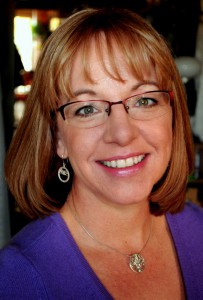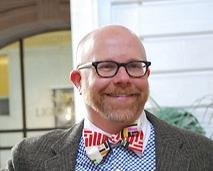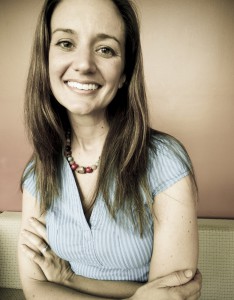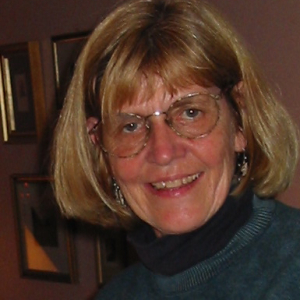Profiling Great Sexuality Educators includes interviews that originally appeared on the website of The Center for Sexual Pleasure and Health and is adapted and reprinted with permission.
Interview with Dr. Melanie Davis
1. What do you do in the field of sexuality?
Like a lot of sexuality educators, I have multiple jobs that combine to create an interesting career. My work falls into five areas: teaching, curriculum development, consulting, writing, and advocacy.
Like a lot of sexuality educators, I have multiple jobs that combine to create an interesting career. My work falls into five areas: teaching, curriculum development, consulting, writing, and advocacy.
I teach Human Sexuality and Marriage & the Family courses at Moravian College and have also taught at Marymount Manhattan College and Widener University. I work with medical students through the AMSA Sexual Health Scholars Program and Robert Wood Johnson Medical School. I provide professional development for healthcare professionals and educators through my firm Honest Exchange LLC.
For the Unitarian Universalist Association (UUA), I am the point person for the Our Whole Lives (OWL) sexuality education curricula.
I consult with teens and adults through the New Jersey Center for Sexual Wellness, in which I partner with an OB/GYN and a sex therapist. I love meeting with people one-on-one to find practical solutions that will help them enjoy their sexual lives.
I blog, tweet, and review sexology books and curricula. I also write articles for sexology journals and mass media. That’s a holdover from my days in journalism and marketing, I suspect.
I advocate for the sexual rights of adults in mid- and older age as co-president of the Sexuality and Aging Consortium at Widener University.
2. Where are you based?
Honest Exchange and the New Jersey Center for Sexual Wellness are in Somerville and Bedminster, New Jersey, respectively; I teach in Pennsylvania; and I telecommute to Boston for the UUA.
Honest Exchange and the New Jersey Center for Sexual Wellness are in Somerville and Bedminster, New Jersey, respectively; I teach in Pennsylvania; and I telecommute to Boston for the UUA.
3. What are your particular goals and passions in the field?
I hope to help improve communication between healthcare providers and patients regarding sexuality. I also enjoy helping people who have cancer and other chronic illnesses, as well as those who are aging, to enjoy greater self esteem and intimacy despite the challenges they face. In the classroom, I help students explore their attitudes and beliefs about sexuality while they increase their sexual knowledge.
I hope to help improve communication between healthcare providers and patients regarding sexuality. I also enjoy helping people who have cancer and other chronic illnesses, as well as those who are aging, to enjoy greater self esteem and intimacy despite the challenges they face. In the classroom, I help students explore their attitudes and beliefs about sexuality while they increase their sexual knowledge.
4. Why did you choose to work in this field?
I was a journalist and marketing consultant for 25 years, and while it was enjoyable, there was little direct connection with people. In 1999, I was asked to co-facilitate an OWL class for church and discovered that it addressed my desire to do more meaningful work. Things steam rolled from there. As a professional sexuality educator, I get to help people build knowledge, improve communication, create healthier relationships, and enjoy their sexuality. I also have the chance to work daily on breaking down limiting beliefs and attitudes – mine as well as those of my students and clients.
I was a journalist and marketing consultant for 25 years, and while it was enjoyable, there was little direct connection with people. In 1999, I was asked to co-facilitate an OWL class for church and discovered that it addressed my desire to do more meaningful work. Things steam rolled from there. As a professional sexuality educator, I get to help people build knowledge, improve communication, create healthier relationships, and enjoy their sexuality. I also have the chance to work daily on breaking down limiting beliefs and attitudes – mine as well as those of my students and clients.
5. Where did you go for school/training?
My first training was from Planned Parenthood, when I was a volunteer sex educator and exam room assistant; then I became a certified OWL facilitator. I took countless workshops from ANSWER and the Center for Family Life Education before entering the Widener University Graduate Program in Human Sexuality. I take a lot of continuing education classes because there’s always something new to learn or a new way to explore an issue.
My first training was from Planned Parenthood, when I was a volunteer sex educator and exam room assistant; then I became a certified OWL facilitator. I took countless workshops from ANSWER and the Center for Family Life Education before entering the Widener University Graduate Program in Human Sexuality. I take a lot of continuing education classes because there’s always something new to learn or a new way to explore an issue.
6. Do you have any literature out (websites, articles)?
I blog and have posted some of my articles on www.HonestExchange.com and on the Consortium’s site, www.widener.edu/sexualityandaging . I tweet links to and comments on sexology news at @DrMelanieDavis.
I blog and have posted some of my articles on www.HonestExchange.com and on the Consortium’s site, www.widener.edu/sexualityandaging . I tweet links to and comments on sexology news at @DrMelanieDavis.
My sex advice column for Fantasia Home Parties can be found here:http://www.fantasiahomeparties.com/sex_expert.php
One of my favorite publications was on Sexuality Education as a Ministry, for the American Journal of Sexuality Education, Volume 6, Issue 1, 2011.
7. What would you recommend to future sexologists attempting to get into the field?
I suggest that people to think strategically about both their academic programs and their careers. Some opportunities that are exciting when you’re new to the field may come back to haunt you when you’re looking for a fulltime position with a non-profit organization, a corporation, or a university. That’s not to discourage people from exploring their options but rather to encourage them to think twice before blogging, tweeting, or posting everything they do, think, or feel.
I suggest that people to think strategically about both their academic programs and their careers. Some opportunities that are exciting when you’re new to the field may come back to haunt you when you’re looking for a fulltime position with a non-profit organization, a corporation, or a university. That’s not to discourage people from exploring their options but rather to encourage them to think twice before blogging, tweeting, or posting everything they do, think, or feel.
8. What is the most challenging aspect for you working in this career?
Finding lucrative jobs can be difficult. Most people who aren’t fulltime academics, therapists, or retailers cobble together careers out of multiple consulting, teaching and speaking gigs. The bigger challenge, however, is to stay positive amid the constant political and religious attacks against healthy and equitable sexuality.
Finding lucrative jobs can be difficult. Most people who aren’t fulltime academics, therapists, or retailers cobble together careers out of multiple consulting, teaching and speaking gigs. The bigger challenge, however, is to stay positive amid the constant political and religious attacks against healthy and equitable sexuality.
9. One must read-what would you recommend? Why?
Peter Palmer’s book “The Courage to Teach” addresses the emotional vulnerability of teachers and the importance of teaching from the heart, no matter how heartless our evaluations, our paychecks, the demands on our time, the political pressures, etc. It wasn’t written for sexuality educators, but it’s pertinent for us.
Peter Palmer’s book “The Courage to Teach” addresses the emotional vulnerability of teachers and the importance of teaching from the heart, no matter how heartless our evaluations, our paychecks, the demands on our time, the political pressures, etc. It wasn’t written for sexuality educators, but it’s pertinent for us.
__________________________________________________________________
Profiling Great Sexuality Educators includes interviews that originally appeared on the website of The Center for Sexual Pleasure and Health and is adapted and reprinted with permission.





